Sharon, also spelled Saron, is a given name as well as a Hebrew name.

Chloe, also spelled Chloë, Chlöe, or Chloé, is a feminine name meaning "blooming" or "fertility" in Greek. The name ultimately derives, through Greek, from the Proto-Indo-European root *ǵʰelh₃-, which relates to the colors yellow and green. The common scientific prefix chloro- derives from the same Greek root. In Greek the word refers to the young, green foliage or shoots of plants in spring.
Amy is an English feminine given name, the English version of the French Aimée, which means beloved. It was used as a diminutive of the Latin name Amata, a name derived from the passive participle of amare, “to love”. The name has been in use in the Anglosphere since the Middle Ages. It was among the 50 most popular names for girls in England between 1538 and 1700. It was popularized in the 19th century in the Anglosphere by a character in Sir Walter Scott's 1821 novel Kenilworth, which was based on the story of Amy Robsart. Enslaved Black women in the United States prior to the American Civil War were more likely to bear the name than white American women because slave masters often chose their names from literary sources. The name declined in use after 1880 but was revived due to the hit song Once in Love with Amy from the 1948 Broadway musical Where's Charley?. The name peaked in usage in the United States between 1973 and 1976, when it was among the five most popular names for American girls. It remained among the top 250 names for American girls in the early 2020s.
Vanessa is a feminine given name.

Bonnie is a Scottish given name and is sometimes used as a descriptive reference, as in the Scottish folk song, My Bonnie Lies over the Ocean or Bonnie Dundee about John Graham, 7th Laird of Claverhouse. It comes from the Scots language word "bonnie", or the French bonne (good). That is in turn derived from the Latin word "bonus" (good). The name can also be used as a pet form of Bonita.
Blair is a Scots-English-language name of Scottish Gaelic origin.
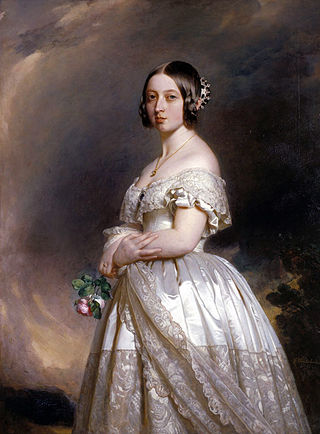
Victoria is a feminine given name. It is also used as a family name.
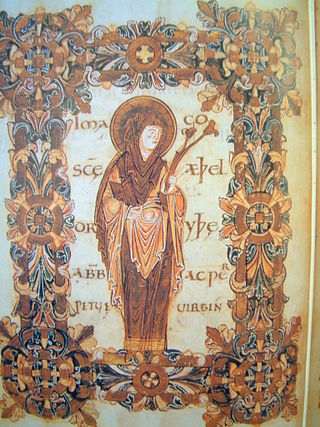
Audrey is a feminine given name. It is rarely a masculine given name. Audrey is the Anglo-Norman form of the Anglo-Saxon name Æðelþryð, composed of the elements æðel "noble" and þryð "strength". The Anglo-Norman form of the name was applied to Saint Audrey, also known by the historical form of her name as Saint Æthelthryth. The same name also survived into the modern period in its Anglo-Saxon form, as Etheldred, e.g. Etheldred Benett (1776–1845).
Karen is a given name and occasional surname. In English, it is a feminine given name derived from the name Katherine, and it is also found in modern Africa, as well as in East Asia. However, in other countries such as Iran and Armenia, it is a masculine name deriving from Middle Iranian. The name 'Karen' also became a popular nickname for middle aged women that easily resort to asking for management in the face of adversity.
Julie is a popular Latin first name which originally comes from the Latin Julia, itself derived from the Latin Julius, which is believed to either stem from Ancient Greek: ἴουλος, romanized: íoulos, lit. 'downy-haired' or Latin: Iovilius, lit. 'devoted to Jove'. It can be a pet form of Julia, Yulie, or Juliette.
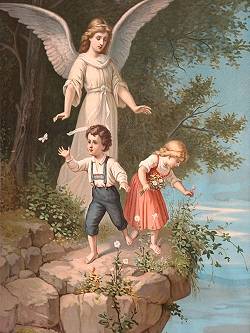
Angela is a female given name. It is derived from the Greek word ángelos (ἄγγελος), meaning angel from Greek belief systems. In the United States, the name "Angela" was at its most popular between 1965 and 1979, when it was ranked among the top 10 names for girls. Between 1922 and 2021, in the United States, the name was ranked in the top 35 names for girls.
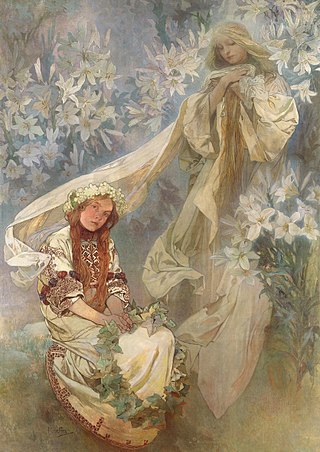
Lily is a feminine given name usually derived from lily, the flower. The name became particularly popular along with other flower names for girls during the 1800s and early 1900s. The lily also has associations with and has been symbolic of innocence and purity in Christian art. Names beginning with or containing the letter L have also been particularly fashionable for girls. It is also occasionally used as a diminutive for other names such as Elizabeth.
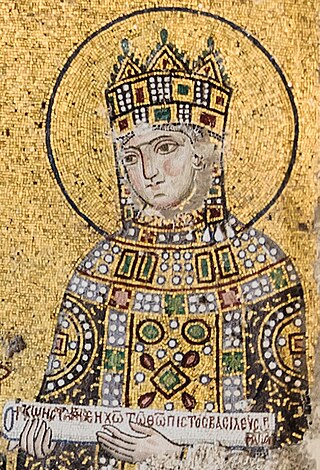
Zoe, Zoey, Zoie, Zoi, Zoé or Zoë is a female first name of Greek origin, meaning "life". It is a popular name for girls in many countries, ranking among the top 100 names for girls born in the United States since 2000. It is also well used in other English-speaking countries including Australia, Canada, Ireland, New Zealand, and the United Kingdom, as well as in other countries including Argentina, Belgium, Czech Republic, France, Hungary, Italy, Mexico, Netherlands, Spain, and Switzerland. In 2022, Zoe was the 20th most popular name given to girls in Canada, while Zoey was 42nd.

Mary is a feminine given name, the English form of the name Maria, which was in turn a Latin form of the Greek name Μαρία, María or Μαριάμ, Mariam, found in the Septuagint and New Testament. The latter reflects the original Hebrew pronunciation of the name מרים, as attested by the Septuagint. The vowel "a" in a closed unaccented syllable later became "i", as seen in other names such as "Bil'am" (Balaam) and "Shimshon" (Samson).
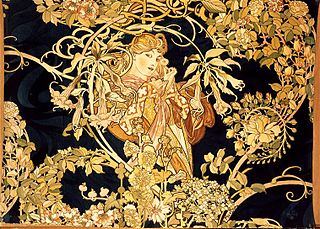
Daisy is a feminine given name. The flower name comes from the Old English word dægeseage, meaning "day's eye". The name Daisy is therefore ultimately derived from this source. Daisy is also a nickname for Margaret because Marguerite, the French version of the latter name, is also a French name for the oxeye daisy.

Shirley is a given name and a surname originating from the English place-name Shirley, which is derived from the Old English elements scire ("shire") or scīr and lēah. The name makes reference to the open space where the moot was held. The surname Shirley became established as a female given name in 1849 due to its use in Charlotte Brontë's novel Shirley, in which the character explains that her parents had intended the family surname for a son. It was further popularized in 1851–52 by its pseudonymous use by California Gold Rush writer Louise Amelia Knapp Smith Clappe. It was eventually brought to its highest popularity, in the 1930s, by the fame of child star Shirley Temple.

Emma is a feminine given name. It is derived from the Germanic word ermen, meaning "whole" or "universal". It likely originated as a short form of names such as Ermengarde or Ermentrude. Its earliest use begins at least from the early seventh century, with Frankish royal daughter Emma of Austrasia and the wife of Eadbald of Kent found in written sources. Its popularity in the medieval era increased because it was the name of Emma of Normandy, mother of Edward the Confessor. Emmeline is a Norman variant of Emma that was introduced to England by the Norman invaders in the 11th century. The name is etymologically unrelated to Amalia, Amelia, Emilia, and Emily, all of which are derived from other sources, but all of these names have been associated with each other due to their similarity in appearance and sound. Emma has been used as a short form of some of these names or shares diminutives such as Em or Emmy with them.

Ursula is a feminine given name in several languages. The name is derived from a diminutive of the Latin ursa, which means "bear". The name was best used in the Anglosphere in the 16th century but has since been rather uncommon in English-speaking countries, although its use has been influenced since the twentieth century by the Swiss-born actress Ursula Andress. It was among the most popular names for newborn girls in Germany from the 1920s to the 1950s. Ulla, Ursel, and Uschi are German short forms of the name.

Flora is a feminine given name of Latin origin meaning flower, ultimately derived from the Latin word flos, which had the genitive florus. Flora was a fertility goddess of flowers and springtime in Ancient Rome.

Clara or Klara is a female given name. It is the feminine form of the Late Latin name Clarus which meant "clear, bright, famous". Various early male Christian saints were named Clarus; the feminine form became popular after the 13th-century Saint Clare of Assisi, one of the followers of Saint Francis, who renounced her privileged background and founded the order of Poor Clares.














